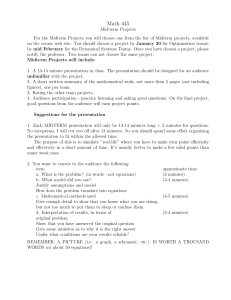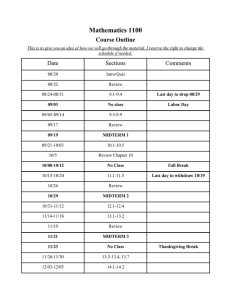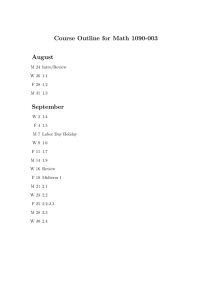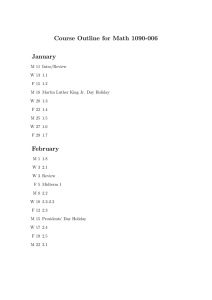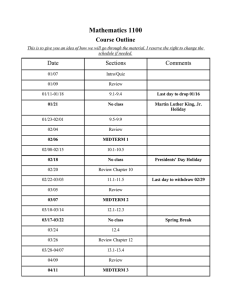Document 11733765
advertisement
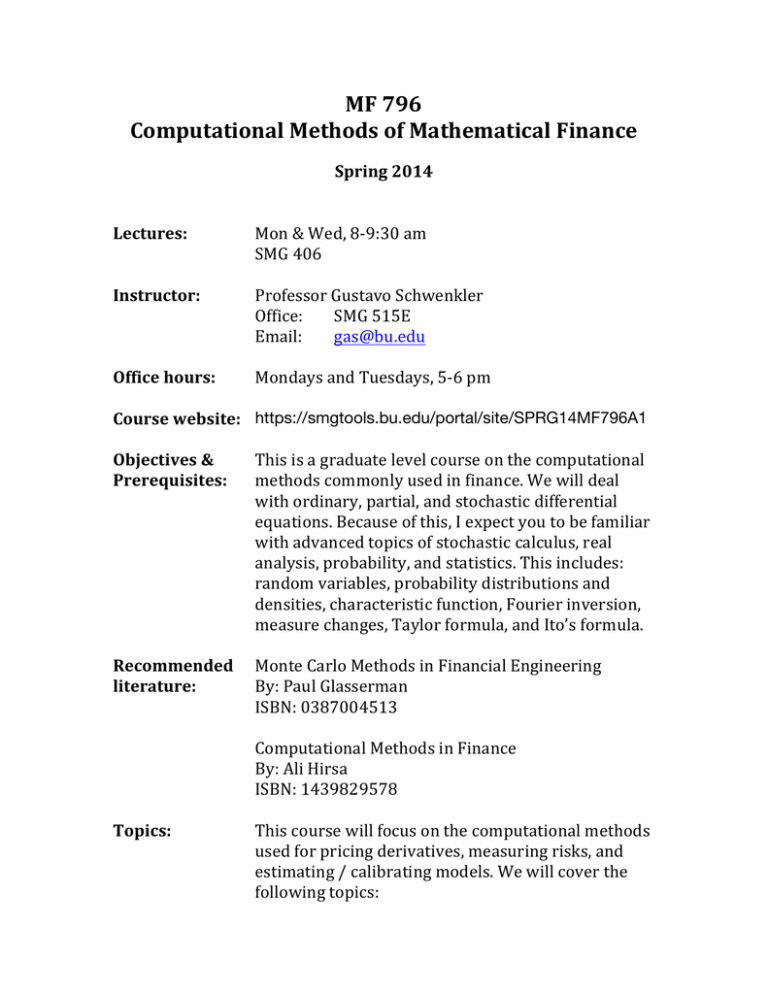
MF 796 Computational Methods of Mathematical Finance Lectures: Instructor: Office hours: Course website: Objectives & Prerequisites: Recommended literature: Topics: Spring 2014 Mon & Wed, 8-­‐9:30 am SMG 406 Professor Gustavo Schwenkler Office: SMG 515E Email: gas@bu.edu Mondays and Tuesdays, 5-­‐6 pm https://smgtools.bu.edu/portal/site/SPRG14MF796A1 This is a graduate level course on the computational methods commonly used in finance. We will deal with ordinary, partial, and stochastic differential equations. Because of this, I expect you to be familiar with advanced topics of stochastic calculus, real analysis, probability, and statistics. This includes: random variables, probability distributions and densities, characteristic function, Fourier inversion, measure changes, Taylor formula, and Ito’s formula. Monte Carlo Methods in Financial Engineering By: Paul Glasserman ISBN: 0387004513 Computational Methods in Finance By: Ali Hirsa ISBN: 1439829578 This course will focus on the computational methods used for pricing derivatives, measuring risks, and estimating / calibrating models. We will cover the following topics: Grading: Midterm: Project: Rules: • Discretization of stochastic differential equations • Monte-­‐Carlo simulation • Random number generation • Bias and variance • Variance reduction • Exact simulation • Finite differences for partial differential equations • Quadrature methods • Filtering (if time permits) Homework: 30% Midterm: 30% Final project: 40% There will be a midterm on Wednesday, March 5, 2014, in class 8-­‐9:30 am. You are allowed to bring one cheat sheet of your own annotations to the midterm, but you have to hand in your cheat sheet with your midterm. There will be a final project to be submitted on May 2, 2014. You will be required to build teams of 3-­‐4 people to work with on a project of practical relevance. You will have two weeks to work on the project. The project will involve coding. You are required to submit a written summary of at most 10 pages containing your method and results. Also, your team will be required to give a 10-­‐minute presentation of your results in class during the week of April 28, 2014. More details about the project will be announced in class. • There will be homework assignments due every second week. • Homework is due in class by the end of the class on the due date • You can work in teams on your homework, but you need to submit your own write-­‐up of the solutions. Please give the names of your team members on your write-­‐up • No late homework will be accepted. NO EXCEPTIONS! • Calculators are allowed for the midterm, but unnecessary • Cellular phones and other devices with built-­‐in memory must be turned off • If you cannot make it to the midterm, you need to let the instructor know by midnight on Tuesday, March 4, and you need to indicate verifiable reason • If you don’t agree with the grading of either your homework or your final, you need to submit a written objection to the Teaching Assistants • Cheating will be dealt with in accordance with University policy, and may result in failure of the course
